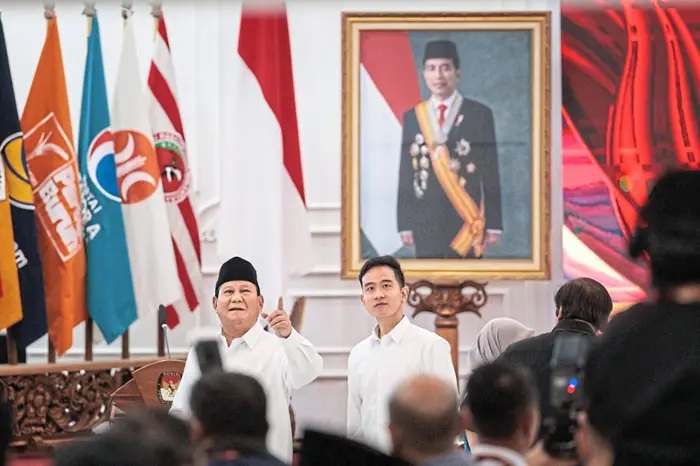(ANN/STRAITS TIMES) – Another court ruling in Indonesia has paved the way for another son of outgoing President Joko Widodo, popularly known as Jokowi, to enter the political arena.
On May 30, Indonesia’s Supreme Court approved a change to the minimum age requirement for candidates in the upcoming November regional head elections. Under the revised rule, candidates need only be 30 years old at the time of inauguration, rather than at the confirmation of their candidacy.
This landmark decision clears the path for Jokowi’s 29-year-old son, Kaesang Pangarep, to pursue a bid in the Jakarta elections, as he will turn 30 in December.

Kaesang is the younger sibling of Vice-President-elect Gibran Rakabuming Raka, who successfully ran in the February presidential election following a controversial ruling by the Constitutional Court in October 2023, which amended the age requirements for candidates.
While maintaining the minimum age of 40 for presidential and vice-presidential candidates, the Constitutional Court exempted elected regional leaders like Gibran, who currently serves as mayor of Solo city at the age of 36.
Initially sparking nationwide debate on dynastic politics in ASEAN’s largest nation, the May ruling has seen initial criticism fade in prominence. Recent media coverage has instead focused on pressing issues such as rising living costs, updates on haj pilgrimages, and preparations for Jokowi’s impending handover of power to Prabowo Subianto in October. Experts argue that amid economic concerns, many Indonesians, particularly those in rural areas, view familial political continuity favorably.

“While dynastic politics may stir debate, most Indonesians prioritise everyday challenges over political lineage, a long-standing norm in our country,” said Dedi Dinarto, lead Indonesia analyst at Global Counsel.
Beyond the Widodo family, Indonesia boasts a political landscape dotted with other prominent dynasties. These include the family of Indonesia’s fifth president, Megawati Soekarnoputri, whose father, Soekarno, was the nation’s first president. Megawati’s daughter, Puan Maharani, currently serves as the Speaker of the House of Representatives.
Another example is Agus Harimurti Yudhoyono, son of former President Susilo Bambang Yudhoyono, who has transitioned from military service to become the Minister of Agrarian Affairs and Spatial Planning.
Reflecting on Indonesia’s historical prevalence of political dynasties, Dedi suggested that public resistance to familial political power may only intensify in the face of significant economic downturns.
Dr Irman G Lanti of Padjadjaran University, also a visiting fellow at the S. Rajaratnam School of International Studies, underscored the entrenched role of feudal and aristocratic values in Indonesia’s political culture, particularly among the rural poor, who constitute a majority of voters.
“In many cases, voters perceive kinship with successful leaders as a desirable quality,” noted Irman.
Despite criticisms, ruling families continue to command considerable public support, as demonstrated by Gibran’s resounding victory with Prabowo, securing over 60 per cent of the vote in the February presidential election.
“Urban, educated middle-class voters are typically more critical of dynastic practices, but they remain a minority,” added Irman.
Looking ahead, Indonesia’s political landscape appears poised to remain dominated by familial ties, with recent studies highlighting a significant prevalence of blood and affiliated connections among elected legislators.
Made Supriatma, visiting fellow at ISEAS–Yusof Ishak Institute, cautioned against the potential pitfalls of dynastic politics, warning that such practices could stifle competition and hinder the emergence of capable leadership.
“Dynastic politics, as a form of political monopoly, risks narrowing the field of contenders and compromising governance effectiveness in the long term,” he cautioned.
In essence, while the debate over dynastic politics continues to simmer, ruling families appear firmly entrenched in Indonesia’s political fabric, shaping its present and potentially constraining its future.


